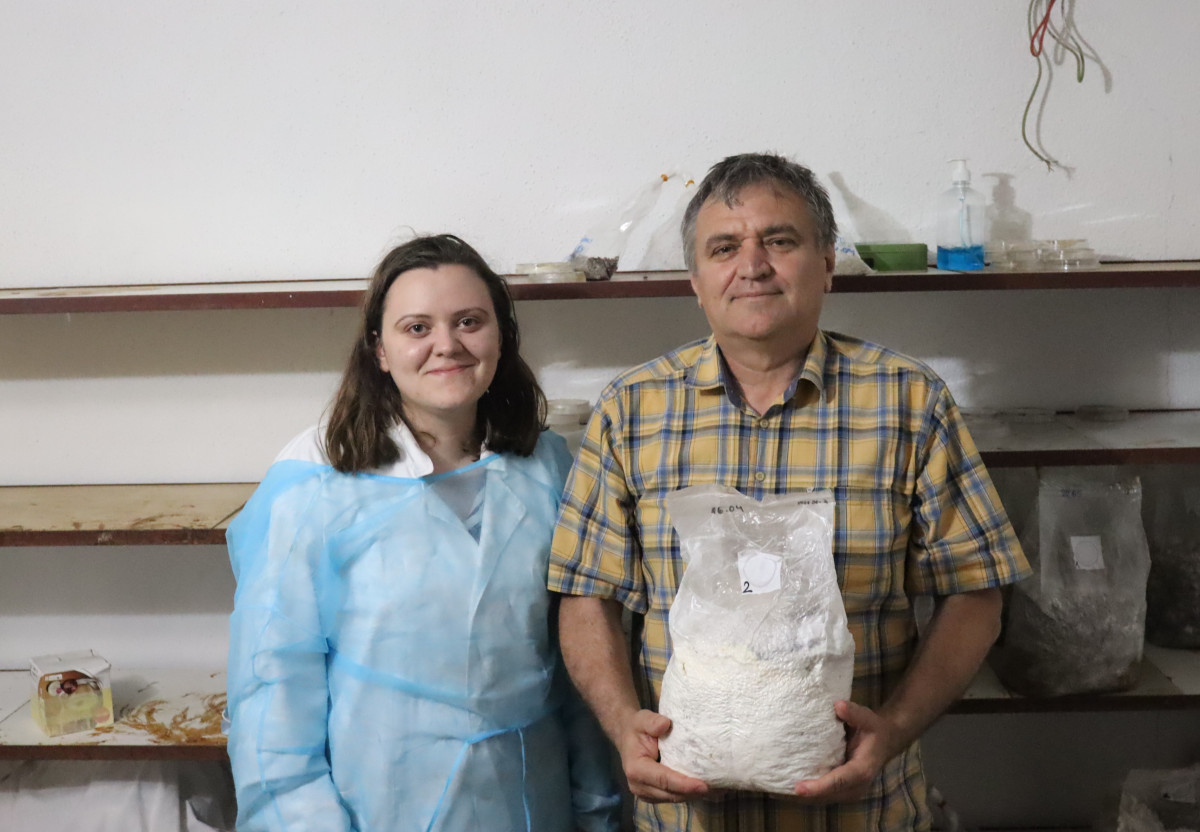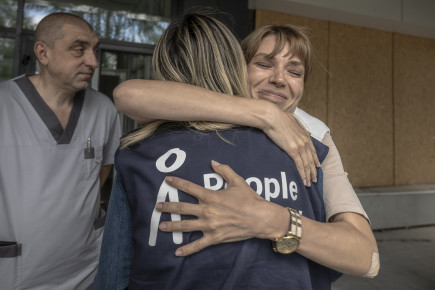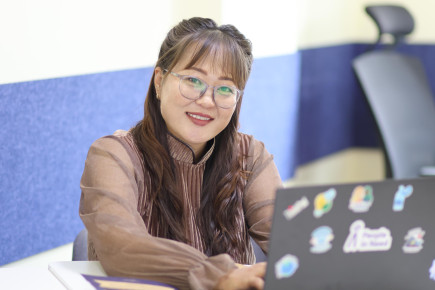Food that will grow in a month: Circular economy in North Macedonia
Published: Sep 13, 2024 Reading time: 5 minutes Share: Share an articleEkovita is a small family-run NGO based in Negotino, North Macedonia. The organisation is involved in many ecological activities, including promoting a circular economy in the production of mushrooms. We partnered with Ekovita to promote circular economic principles, mainly among young people in North Macedonia. With the support of the European Union and other local NGOs, Ekovita will introduce sustainable food cultivation practices to 10 agriculture high schools nationwide.

Negotino is a town located in the central part of North Macedonia. It is well known as the area from where one of the best Macedonian wines comes from. However, it may soon become famous for another crop – mushrooms!
I met Kristina Todorova and her father, Sashko, the president of Ekovita, in a park in front of their office.
As Kristina recalls, she has been passionate about nature and agriculture since she was little. In fact, she followed in the footsteps of her parents, who both studied biology. Kristina first grew mushrooms at just six years old. She graduated as an agricultural engineer and is now fully dedicated to working for Ekovita.
Ekovita is not unique only because of the variety of mushroom species it produces but also because of its environmentally friendly production. They use the elements of a circular economy, especially when preparing the substrate.
We don't produce any waste!
"If we want to grow mushrooms, we need to prepare substrate first. We use sawdust, wooden waste from pallets, and organic waste such as straw, olive seeds, or sunflower seed peels. The substrate needs to pasteurise, and then we put it into 4-kilo bags."
After the substrate cools down, Kristina adds the mycelium she grows and prepares in her laboratory. Usually, she doesn't let anyone in because she wants to prevent the transmission of bacteria into her laboratory, which can harm the growth of the mycelium. However, this time, she made an exception. I observed her making mycelium, which resembles medical or pharmaceutical labwork, as Kristina wore laboratory clothes and used a microscope and tweezers.
After putting the mycelium into the substrate and the whole mixture into a plastic bag, it takes one to two months for the first mushrooms to grow. "The fastest growing mushroom is an oyster mushroom. It grows in one month. Other species need two months," explains Kristina.
Ekovita produces its own mushroom products, such as mushroom pasta and syrup, but it also prepares ready-to-grow kits and teaches people how to grow their own mushrooms. By doing so, they also help people struggling to make ends meet.
Along with Kristina and her father, we visited one of the people who had grown mushrooms out of ready-to-grow kits. The bags filled with substrate and mycelium hung in a dark and humid basement. Although it was not in autumn, when the conditions would be best for mushrooms to grow, we could already see a few making their way through the bag.
We will work with Ekovita and other North Macedonian NGOs to continue providing families with this opportunity. With the European Union's financial support, we will promote circular economy practices among young people. Ekovita will introduce its mushroom-growing project to various schools nationwide and help young people learn how to grow their own food sustainably.
Controlling air quality, cooking sustainably, watching the stars, and debating!
However, growing mushrooms is just a part of all the activities covered by Ekovita. Their primary concern is environmental protection. Therefore, they measure the quality of the air in their town and surrounding villages with the help of measuring stations and lichens.
Ekovita works hard to improve their surroundings. They also contribute to developing local relations and involving the people of Negotino. For instance, Kristina's father remembers how they bought solar ovens and, together with other locals, cooked some delicious food—or the night when they gathered on the hill in the park and watched the stars through their telescope with the local children.
Locals love to visit their place! When I was about to say goodbye to Kristina's family (and their two dogs), a group of young people arrived for their afternoon debate club, where they learn how to communicate and express their opinions under the supervision of a tutor. I was glad to stay a bit longer with the young people and Kristina's family and to taste their favourite mushroom-based food – буковка на сонце (mushroom on a sun), which is Ekovita's special recipe.


